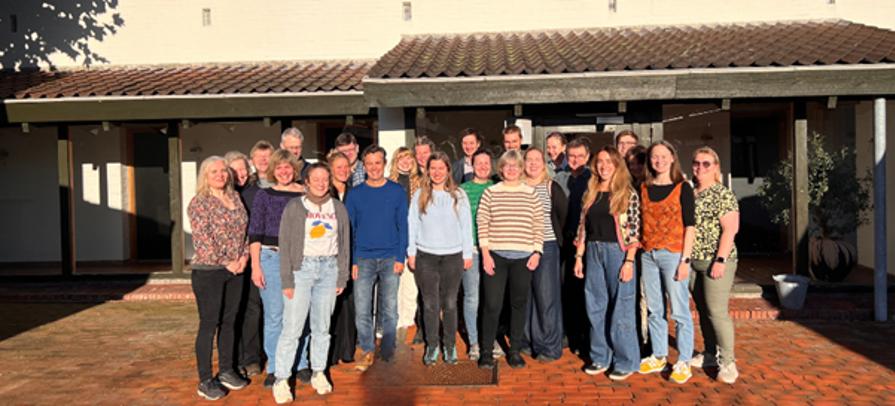Marine Research in the North Atlantic adds Valuable Knowledge on the Ecosystem
Collaborative research on the marine environment around the Greenland-Scotland Ridge promises a significant lift in the understanding of the marine ecosystem in the presence of unprecedented environmental change.
A marine research programme funded by the Danish government – MARiNAO - has proved very successful in gaining new essential knowledge on the environment in the Greenland-Iceland-Faroe-Scotland Ridge.
The subsea mountain ridge connecting Greenland, Iceland and the Faroe Islands with the North Sea is also a place where the northern North Atlantic Ocean meets the Norwegian and Icelandic seas. The region is extremely productive, due to favourable environmental conditions, such as nutrient and oxygen richness, and fisheries in this region are important industries for many nations. This region is considered a hotspot for climate change, even a possible tipping point for the entire system, in that the Atlantic Meridional Overturning Circulation – AMOC – dominates the large-scale ocean circulation in the area. The marine environment knows no national boundaries, so it is advantageous to collaborate internationally when monitoring the health of the ecosystem. This is what the Danish Government has facilitated by funding the research programme MARiNAO since 2020.
The overarching aims of the programme are to generate excellent science on the marine environment in the North Atlantic Ocean, to promote cooperation between the Faroe Islands, Greenland and Denmark, and to train a new generation of marine researchers.
Approaching the goals
The MARiNAO programme is administered by Research Council Faroe Islands in cooperation with a Programme Committee.
Four years into the programme the Programme Committee of MARiNAO concludes that the research carried out is meeting the goals set out by the Danish government.
After an annual meeting of the participants in the projects funded so far in October in Helsingør, Denmark, the Programme Committee made the following statement: "
As members of the Programme Committee of MARiNAO we feel that the programme has exceeded expectations so far. It is our hope that the programme will continue, and that it will entrain other countries, particularly Iceland but also Scotland and Norway. This will expand the collaboration so that we better understand the resilience and vulnerability of marine life in the presence of extreme environmental change.”
Cover all trophic levels
The first rounds of calls from the programme received many more good proposals than could be funded. All proposals were evaluated and graded by an international peer review panel.
Nine projects have been funded so far, three are led from Greenland, three from the Faroe Islands and three from Denmark. All the projects represent collaborations between at least two of the three countries. Twenty young scientists are involved - from bachelor and master’s level to PhD candidates (5) and postdoctoral researchers (5). This bodes well for the future of marine research in the region.
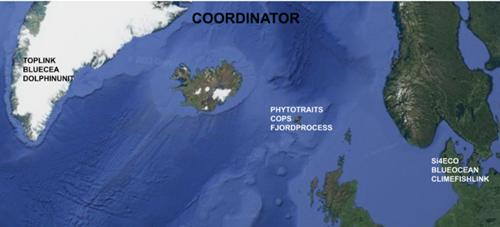
Despite prioritising projects based on scientific excellence the portfolio of funded research is remarkably complete. The current nine projects cover virtually all trophic levels of the foodweb, from the chemical nutrients via plant and zoo plankton, to fish and large mammals.
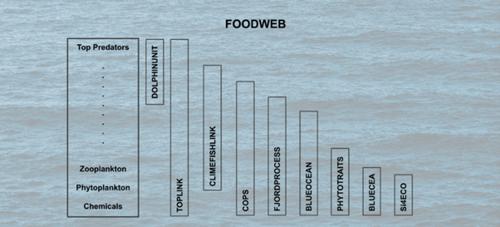
Likewise, the study region covers the entire ridge, with strong emphasis on tracking and explaining the productivity and movements from the innermost fjords of Greenland and the Faroes to the wide-open ocean areas.
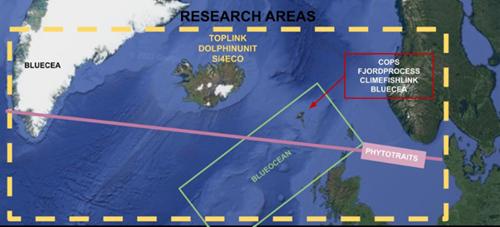
In contrast to the conventional management of a research programme where projects live separate lives after being funded, all the projects in MARiNAO meet annually to inform each other on progress and continually search for synergies and sharing of data, while further deepening the bonds and understanding between the researchers through the implicit teambuilding. The annual meetings have taken place in all three nations: the Faroe Islands in 2022, Greenland in 2023 and Denmark in 2024.
Results from the projects presented at the annual meeting have shown that the projects are already producing a wide range of policy-relevant information, such as forecasting blue whiting recruitment, tracking whale movements in the North Atlantic, establishing long time zoo plankton time series, and revealing the hidden life of cod and haddock on the Faroese plateau.
A new call for projects funded by the MARiNAO programme will be announced shortly.
More information on the nine projects and the programme is available at gransking.fo/marinao
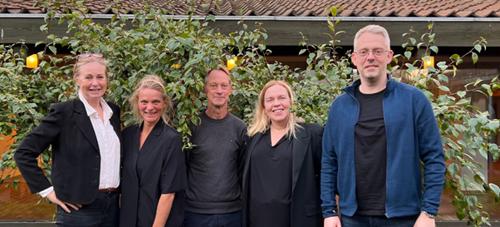
The members of the Programme Committee aa the Meeting in Helsingør, Denmark.
From the left: Cecilie Mauritzen, Norway, Chair, Birgitte Jacobsen, Greenland, Bo Thamdrup, Denmark, Guðbjörg Ásta Ólafsdóttir, Iceland, and Rúni Weihe, Faroe Islands
